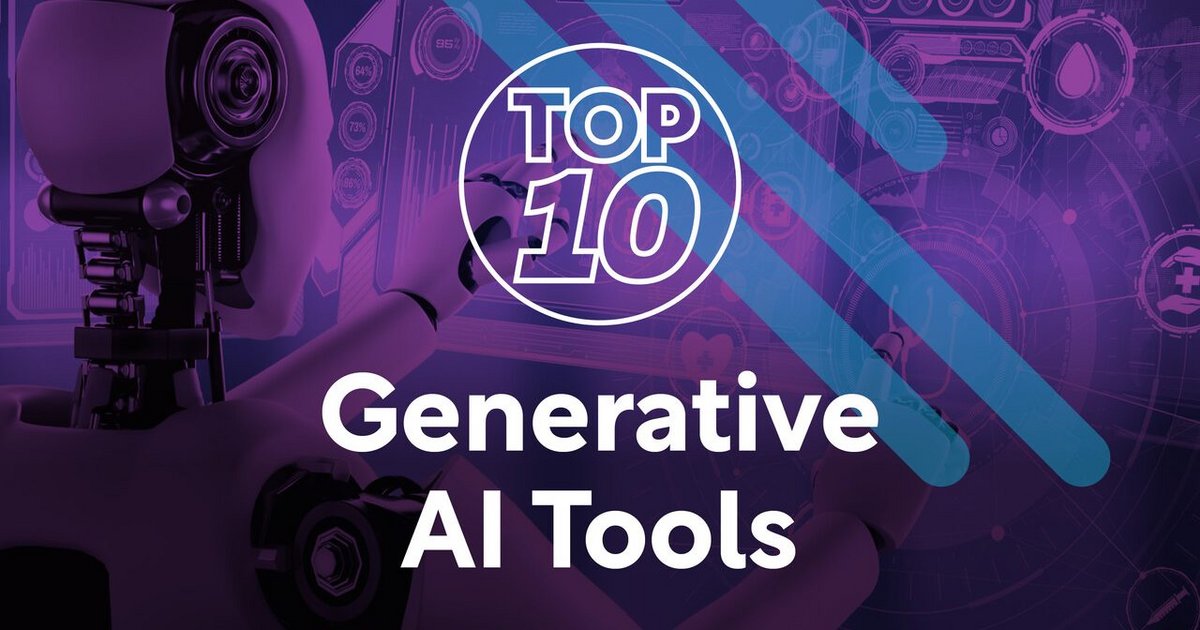Introduction
Artificial intelligence (AI) is revolutionizing various industries, offering innovative solutions and streamlining processes. In this blog post, we will explore 10 AI tools that have been making waves in the market. These tools cover a wide range of applications, from customer service to data analysis, and are designed to enhance productivity and efficiency. Let’s delve into each tool and discover how they can benefit businesses and individuals alike.
1. Chatbots
Chatbots have become an integral part of customer service, providing timely and accurate responses to inquiries. These AI-powered virtual assistants simulate human conversations and can handle repetitive queries, freeing up human agents for more complex tasks. Chatbots can be integrated with websites, messaging apps, and social media platforms, ensuring round-the-clock assistance for customers. Popular chatbot platforms include Chatfuel and IBM Watson Assistant.
2. Image Recognition Software
Image recognition software utilizes AI algorithms to analyze and interpret images. This tool finds application in various domains such as healthcare, retail, and security. For instance, medical practitioners can use image recognition to detect anomalies in medical scans, while e-commerce retailers can employ it to automatically tag and categorize product images. Leading image recognition software includes Google Cloud Vision API and Amazon Rekognition.
3. Natural Language Processing (NLP)
NLP enables machines to understand and interpret human language. This AI tool finds use in sentiment analysis, language translation, and voice recognition systems. Companies can leverage NLP to gain insights into customer feedback and sentiment, allowing them to improve their products and services accordingly. Well-known NLP frameworks include spaCy and NLTK.
4. Virtual Private Assistants
Virtual private assistants like Siri, Google Assistant, and Alexa have become household names. These AI tools assist users in performing tasks, answering questions, and providing personalized recommendations. They can set reminders, play music, control smart devices, and even engage in casual conversation. Virtual private assistants continue to evolve, offering greater convenience and functionality to users.
5. Predictive Analytics
Predictive analytics combines AI and statistical modeling techniques to forecast future outcomes based on historical data. This tool is particularly useful for businesses seeking to optimize their operations and make data-driven decisions. Predictive analytics can help identify customer preferences, forecast demand, and optimize the supply chain. Prominent predictive analytics tools include Microsoft Azure Machine Learning and RapidMiner.
6. Speech Recognition Software
Speech recognition software converts spoken language into written text, enabling hands-free communication and transcription. This AI tool has applications in transcription services, language learning, and accessibility. For instance, journalists can use speech recognition software to transcribe interviews quickly, while individuals with disabilities can use it to control their devices. Popular speech recognition tools include IBM Watson Speech to Text and Google Cloud Speech-to-Text API.
7. Recommendation Systems
Recommendation systems leverage AI algorithms to provide personalized recommendations based on user preferences and behavior. These systems are widely used in e-commerce, streaming platforms, and online content delivery services. By analyzing user data and patterns, recommendation systems can suggest products, movies, and articles tailored to individual tastes. Notable recommendation system tools include Amazon Personalize and Netflix’s recommendation engine.
8. Sentiment Analysis Tools
Sentiment analysis tools analyze textual data to determine the sentiment or emotion behind it. This AI tool helps businesses gauge customer opinions, improve their products, and identify potential issues. Sentiment analysis tools can analyze social media posts, customer reviews, and surveys to provide valuable insights. Leading sentiment analysis tools include MonkeyLearn and Lexalytics.
9. Robotic Process Automation (RPA)
RPA uses AI to automate repetitive and rule-based tasks traditionally done by humans. This tool enables organizations to streamline their processes, increase efficiency, and reduce errors. RPA bots can handle tasks such as data entry, invoice processing, and report generation, freeing up employees for higher-value work. Popular RPA tools include UiPath and Blue Prism.
10. Machine Learning Platforms
Machine learning platforms facilitate the development, training, and deployment of machine learning models. These platforms provide tools and frameworks to simplify the machine learning workflow, making it accessible to non-experts as well. They offer capabilities like data preprocessing, model selection, and evaluation. Well-known machine learning platforms include TensorFlow and scikit-learn.
Conclusion
AI tools are transforming industries and unlocking new possibilities. From chatbots to machine learning platforms, these tools offer innovative solutions for businesses and individuals alike. By leveraging the power of AI, companies can enhance customer experiences, automate labor-intensive tasks, and gain valuable insights from data. Stay ahead of the curve by embracing these AI tools and revolutionize how you work and interact with technology.
